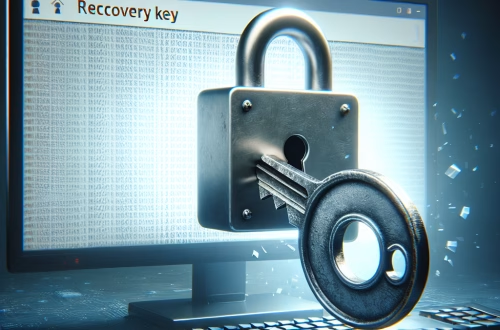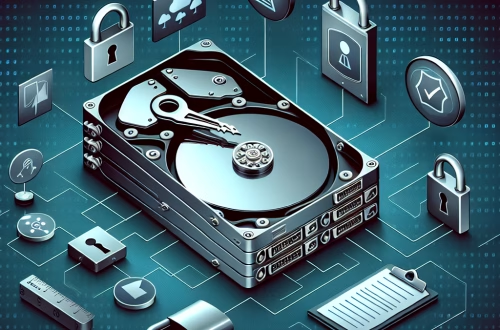bitlocker ubuntu Explained
BitLocker is a full-disk encryption feature available in Windows, while Ubuntu is a Linux-based operating system. The term “bitlocker ubuntu” typically refers to the challenges of accessing or decrypting a BitLocker-encrypted drive from Ubuntu, which lacks native support for BitLocker. This scenario commonly arises when users dual-boot Windows and Ubuntu or attempt to access a BitLocker-protected external drive on a Linux system. To interact with BitLocker-encrypted drives in Ubuntu, third-party tools like dislocker are often required.
What This Means for You
- Immediate Impact: If you attempt to access a BitLocker-encrypted drive in Ubuntu without proper tools, the drive will appear locked, preventing data access.
- Data Accessibility & Security: Without the BitLocker recovery key or password, you cannot decrypt the drive in Ubuntu. Ensure you have the key stored securely (e.g., Microsoft account, USB drive) before attempting access.
- System Functionality & Recovery: Improper handling of BitLocker drives in Ubuntu can lead to data corruption. Use trusted tools like
dislockerto safely mount and decrypt the drive. - Future Outlook & Prevention Warning: Regularly back up your BitLocker recovery key and avoid modifying encrypted drives in Ubuntu without proper decryption steps to prevent permanent data loss.
bitlocker ubuntu Solutions
Solution 1: Using Dislocker to Decrypt BitLocker Drives
dislocker is a Linux tool that allows decryption of BitLocker-encrypted drives. Follow these steps:
- Install
dislockerin Ubuntu:sudo apt update sudo apt install dislocker - Identify the BitLocker-encrypted drive:
sudo fdisk -l - Create a mount point and decrypt the drive using the recovery key:
sudo mkdir /media/bitlocker sudo mkdir /media/decrypted sudo dislocker -V /dev/sdX -pRECOVERY_KEY -- /media/bitlocker sudo mount -o loop /media/bitlocker/dislocker-file /media/decryptedReplace
/dev/sdXwith your drive identifier andRECOVERY_KEYwith the 48-digit recovery key.
Solution 2: Accessing BitLocker Drives via NTFS-3G
If the drive uses BitLocker without additional encryption layers, NTFS-3G may provide read-only access:
- Install NTFS-3G:
sudo apt install ntfs-3g - Mount the drive:
sudo mount -t ntfs-3g /dev/sdX /media/bitlocker
Solution 3: Using a Windows VM for Decryption
For complex BitLocker configurations, a Windows virtual machine (VM) may be necessary:
- Set up a Windows VM in Ubuntu (e.g., using VirtualBox).
- Attach the BitLocker-encrypted drive to the VM.
- Decrypt the drive within Windows and transfer files via shared folders.
Solution 4: Data Recovery from Corrupted BitLocker Drives
If the drive is corrupted, use specialized tools like testdisk or photorec:
sudo apt install testdisk
sudo testdisk /dev/sdXPeople Also Ask About
- Can Ubuntu read BitLocker-encrypted drives? Yes, but only with tools like
dislockerand the correct recovery key. - How do I find my BitLocker recovery key? Check your Microsoft account, email, or printed backup.
- Does Ubuntu support BitLocker encryption? No, Ubuntu uses LUKS for disk encryption.
- Can I disable BitLocker from Ubuntu? No, BitLocker must be disabled from Windows.
Other Resources
For official guidance, refer to Microsoft’s BitLocker documentation (anchor text: “Microsoft BitLocker documentation”).
How to Protect Against bitlocker ubuntu
- Always back up your BitLocker recovery key to multiple secure locations.
- Avoid modifying BitLocker-encrypted drives in Ubuntu without proper decryption.
- Use
dislockeror a Windows VM for safe access to encrypted drives. - Regularly test your recovery key to ensure it works.
Expert Opinion
BitLocker and Ubuntu compatibility remains a niche but critical challenge for dual-boot users. Proper key management and tool usage are essential to prevent data loss. As Linux gains enterprise adoption, native BitLocker support may improve, but for now, third-party tools are the most reliable solution.
Related Key Terms
- BitLocker recovery key Ubuntu
- dislocker Linux
- BitLocker decryption Ubuntu
- NTFS-3G BitLocker
- BitLocker dual-boot issue
*Featured image sourced by Pixabay.com




